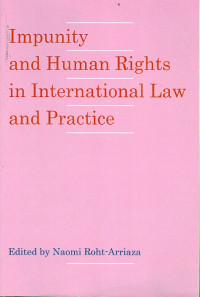
Text
Indonesian Reproductive Health NGOs: a directory
Noting Indonesia and the ASEAN region’s progress on several fronts, Ms. Yasukawa emphasized that improved partnerships are necessary for legislation, laws, policies and budgets for sustainable programmes that are rights-based and gender-sensitive, under the wider umbrella of the 2030 Agenda for Sustainable Development and its Sustainable Development Goals. Indonesia is currently witnessing a bulging youth population (aged 10-24 years), making up about 24% of the country’s 253 million total population, according to 2010-2025 Population Projections. Investing in young people’s education and health, including comprehensive SRH services and information, is imperative for both short-term and long-term productivity. The uneven access to education and the high rate of school drop-out among girls due to economic reasons and sociocultural beliefs are still an issue to address in some communities across this vast land. Strong SRH awareness and access to crucial services ensure the well-being of all young people, while education plays an essential role not only in improving competencies and expanding future opportunities for girls and boys alike, but also in helping end child marriage and early pregnancy that contribute significantly to maternal mortality.
Availability
| KP.IX.000181 | KP.IX IND i | My Library | Available |
Detail Information
- Series Title
-
-
- Call Number
-
KP.IX IND i
- Publisher
- Jakarta : Population Council., 1999
- Collation
-
26 hlm.; 21 cm
- Language
-
Indonesia
- ISBN/ISSN
-
-
- Classification
-
KP.IX
- Content Type
-
-
- Media Type
-
-
- Carrier Type
-
-
- Edition
-
-
- Subject(s)
- Specific Detail Info
-
-
- Statement of Responsibility
-
-
Other version/related
No other version available
File Attachment
Comments
You must be logged in to post a comment
 Computer Science, Information & General Works
Computer Science, Information & General Works  Philosophy & Psychology
Philosophy & Psychology  Religion
Religion  Social Sciences
Social Sciences  Language
Language  Pure Science
Pure Science  Applied Sciences
Applied Sciences  Art & Recreation
Art & Recreation  Literature
Literature  History & Geography
History & Geography